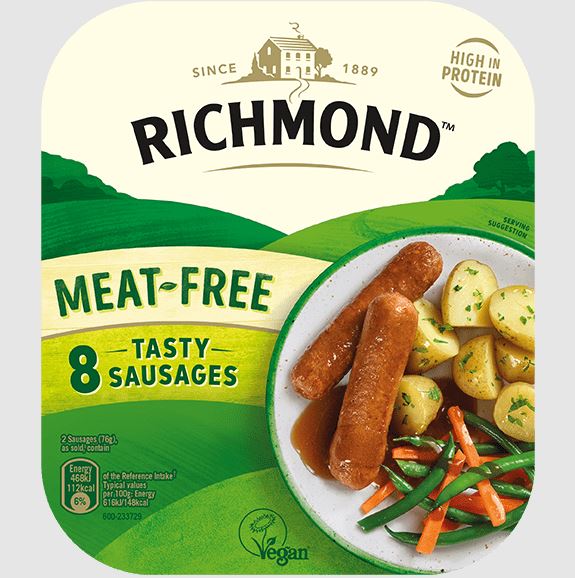
The time has come for the meat industry to take a plant-based approach
The plant-based food market is no longer just for innovators and start-ups. As consumer demands change and the push for sustainability grows, the biggest meat and dairy companies are entering the market – sometimes quietly, sometimes spectacularly.
ProVeg International’s latest analysis highlights 5 companies that have successfully entered the plant protein market, all of which have traditionally produced animal-based products. The lesson, which could be good news: there is no single recipe that works for everyone. Even better news: there are recurring patterns from which we can learn.
Familiar packaging with new content
The example of Richmond in the UK shows how much the power of familiarity matters. They have launched their plant-based sausages under a well-established brand name, in the familiar green packaging, with a familiar font and a friendly tone of voice. This made it easier for consumers – especially flexitarians – to say yes to plant-based alternatives.

The brand’s strong Veganuary campaign and extensive in-store presence contributed to its success. This has helped Richmond quickly become one of the top three meat-free brands in the UK. And the company continued to innovate even as the category’s growth stalled in 2024, with the arrival of plant-based snacks and improved recipes.
Those who acted in time
The German Rügenwalder Mühle started producing vegetarian products in 2014. Today, more of its revenue comes from plant-based foods than from traditional meat-based foods.
What is their secret? Honest communication, premium quality ingredients and in-house expertise. For example, butchers who have been actively involved in developing plant-based recipes. This has not only made the change more credible, but has also reinforced customer confidence.

What is worth noting
Whether it’s acquiring smaller companies or brands (as in the case of Maple Leaf Foods or Nestlé), reshaping recipes (such as Tyson’s Raised & Rooted line) or taking timely action (Rügenwalder Mühle), these companies have not just ridden a fashion wave. What they have in common is that they have consciously entered the market for plant-based diets and plant-based foods, building on their existing strengths. Such strengths include:
- Brand awareness,
- extensive distribution network,
- consumer confidence and
- operational scale.
But not all that is green is gold
As well as the success stories, there is an important lesson to be learned from these examples, namely that switching is no guarantee of success. Reducing packaging, narrowing product offerings and changing consumer habits are testing even the biggest brands.
The key:
- flexibility,
- constant attention to consumer needs and
- continuous improvement.
“Competition in the plant-based food market is becoming increasingly fierce, so it’s important to look at all the pillars if brands want to grow,” Vegconomist wrote.
Featured photo by Richmond